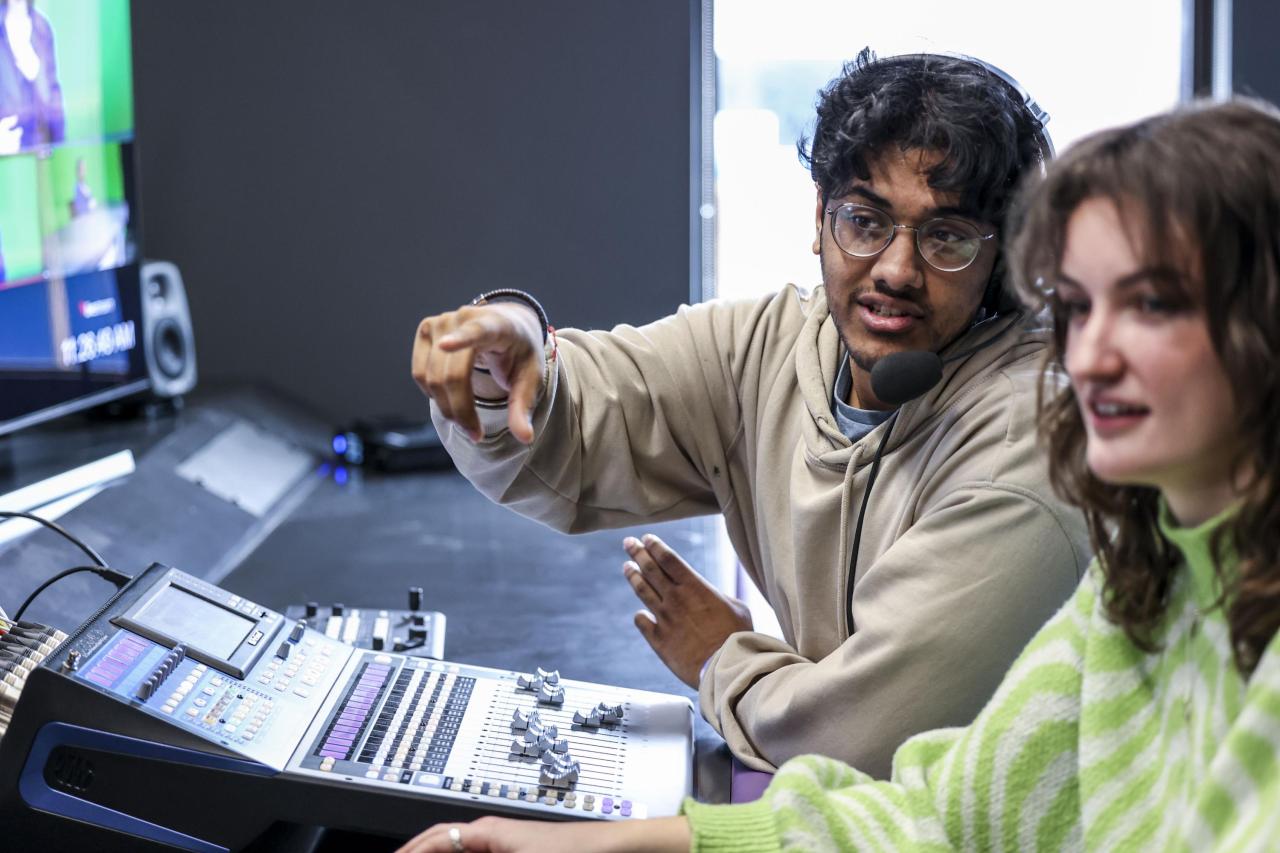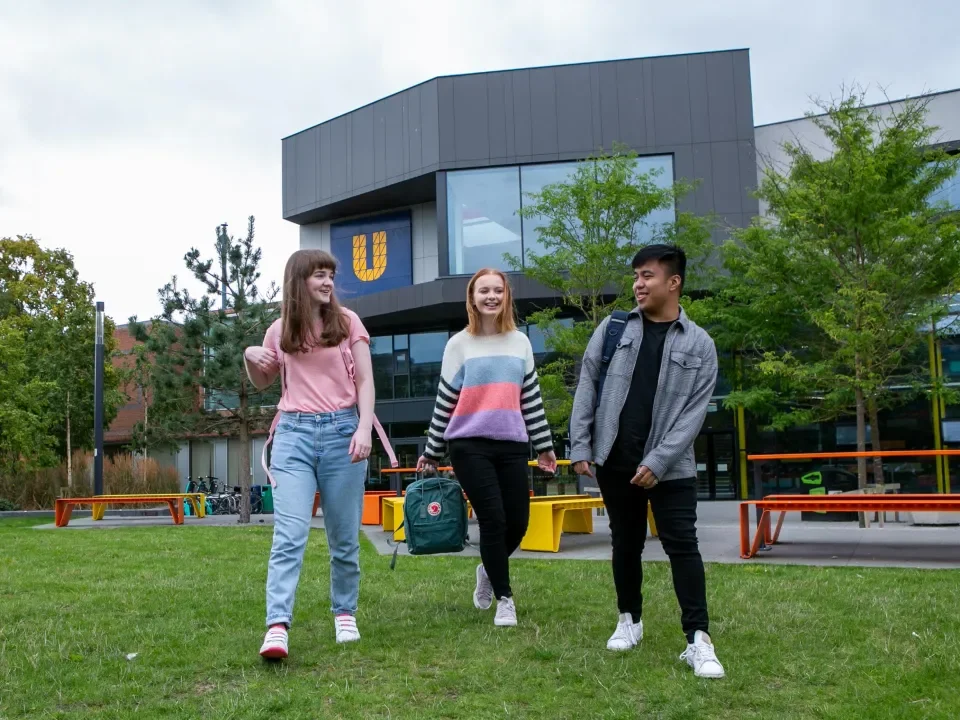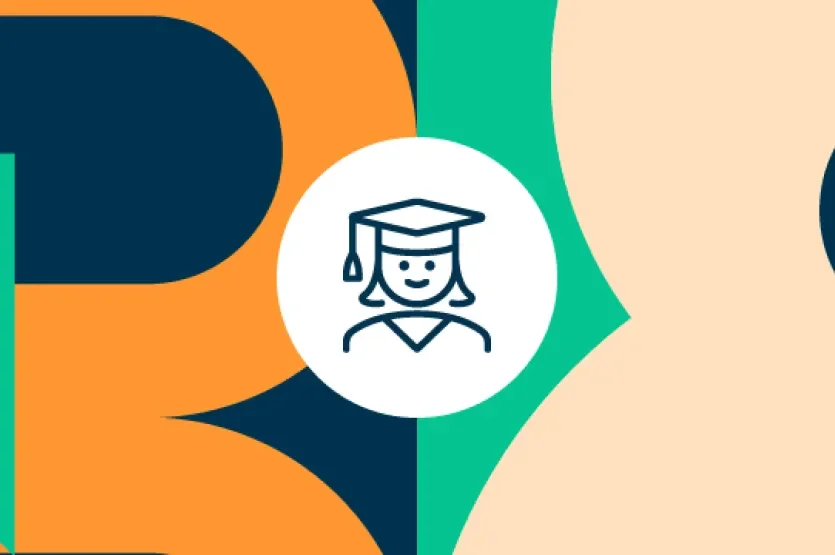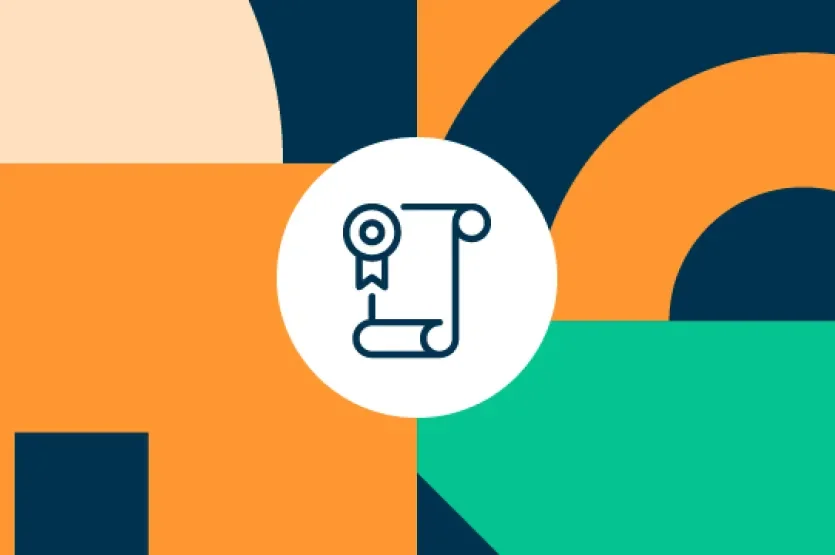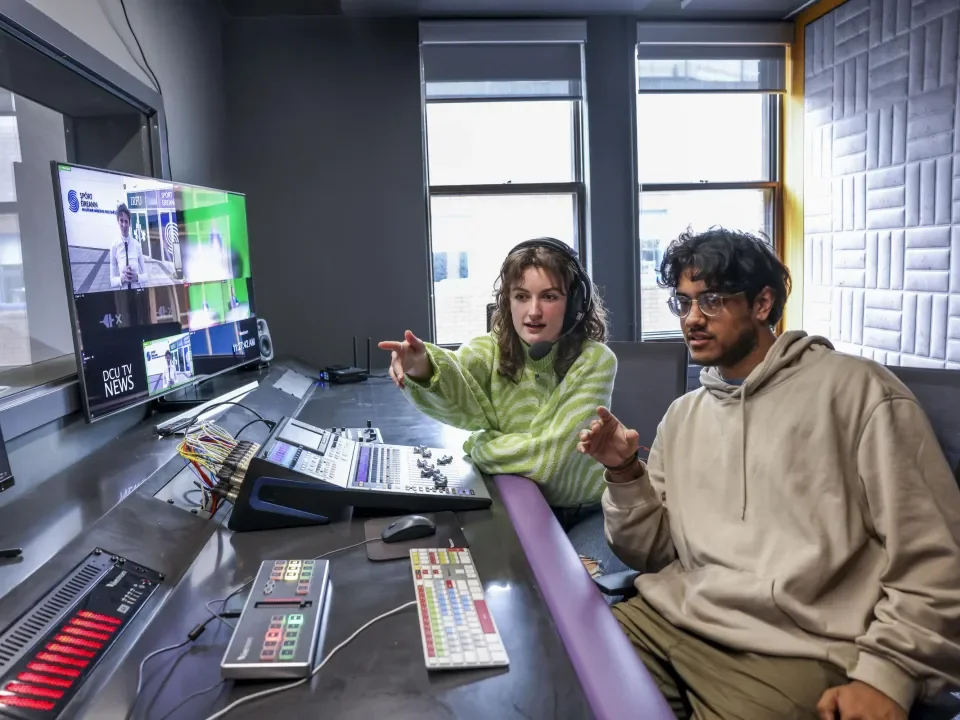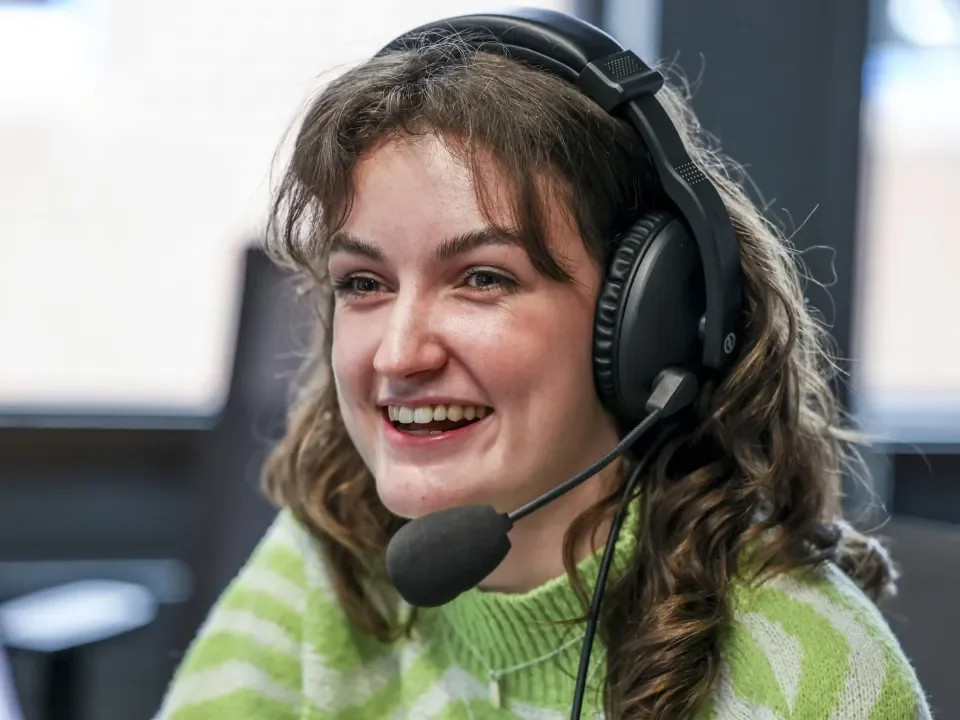Overview
Do you have a creative, enquiring mind and an interest in the design of engaging and interactive media experiences? Then DCU’s BSc in Multimedia is the degree for you! Digital media technologies are central to our everyday lives and essential for any company to succeed in a globalised economy.
Learn from the best
DCU’s BSc in Multimedia was the first degree of its type in Ireland and still leads the field. On this programme, you’ll learn from teaching staff with real-world professional experience and deep knowledge based on research and industry practice.
On this course, you will:
- Develop an understanding of digital media theory.
- Learn about digital text, image and sound manipulation, and multimedia authoring.
- Develop the skills needed to design, develop, and manage creative multimedia projects
- Take part in group-based projects that will prepare you for working in the media design and production industries.
Passion for digital technology
For this degree, you do not need existing skills or practical experience in the analysis or design of media, but you should enjoy working with digital technologies and be interested in problem solving, creative expression and working on focussed group projects.
Why DCU
DCU People
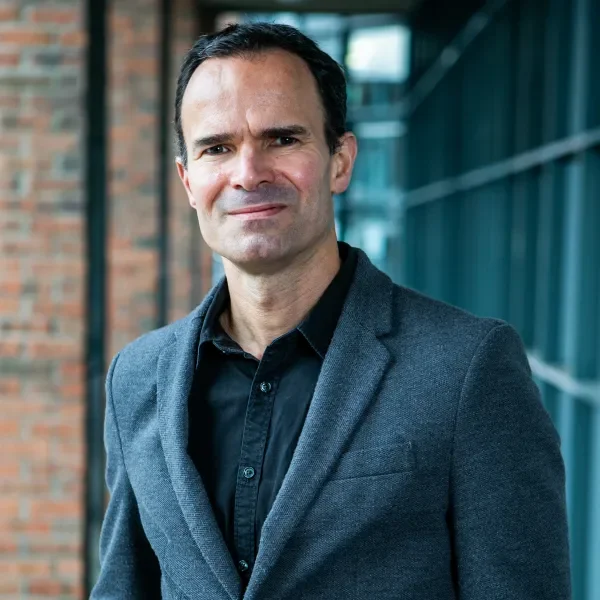
Hi, I’m Marcos Dias and I’m Chair of the BSc in Multimedia which was the first course of its type in Ireland.
Read more about Marcos Dias
Careers & Further Options
Careers
Many of our multimedia graduates are highly successful designers, developers, artists, educators, entrepreneurs and scholars.
The programme is well-established and graduates are valued for their knowledge of production and project management, as well as their specialised skills from optional module choices.
Many of our alumni work in a wide variety of roles in creative media, including production for broadcast and online channels, advertising, interface and product design, programming and app development, and consultancy and management.
The skills you will gain on this programme are highly relevant to the quickly growing and changing market for high quality media design and production.
- Advertising
- Animation & Illustration
- AR/VR (Augmented Reality/Virtual Reality) Production
- Digital Marketing
- Digital Project Planning & Management
- E-Commerce & Online Sales
- E-Learning
- Game Design & Development
- Interaction Design
- Interactive Installations
- Product Design
- Research & User testing
- Social Media Content & Strategy
- Sound Production & Editing
- TV and Film Production
- UI/UX (User Interface/User Experience) Consultancy
- Video Production, Post-production and Video Effects
- Web and App Design & Development
DCU graduates are highly sought after by employers. Our Graduates work in environments ranging from large multinationals to SMEs, family businesses and start-ups across every sector.
DCU Careers Service has a number of learning and development initiatives in place for our students, giving them the skills they need for a successful career path.
Entry Requirements
In addition to the general entry requirements for admission to the university the following entry requirements apply
Minimum of H4 in English
In addition to the general entry requirements for admission to the university the following entry requirements apply
GCE A Level C English
Please visit our Admissions webpage for details on course requirements or how to apply to DCU.
Please visit our QQI FET webpage for details on DCU courses, open days, campus tours or school visits.
To apply to DCU, please visit www.cao.ie.
Mature entry is a competitive process. Applicants must demonstrate:
- a genuine interest in the programme(s) they are applying for
- academic experience and competency in their chosen field of study
- an ability to engage and succeed on the programme
All applicants must complete a statement of interest to be considered for the mature application route.
For further guidance on the mature application process please see the CAO Website
Applicants that have completed at least one year of study at NFQ Level 6, 7 or 8 at another institution may apply to continue their studies on a similar programme at DCU. There should be substantial overlap in content between the two programmes to be considered for a transfer. Results and other supporting documentation must be submitted to CAO by the closing date of 1st July. This is a competitive application process for a small quota of advanced entry places. Offers are made on a rolling basis until all places are filled. Early application is advised. Please note: Applicants should also consider applying through the appropriate route for first year entry to the programme they are interested in. This application process is only for advanced entry.
International candidates are expected to have educational qualifications of a standard equivalent to those outlined above. In addition, where such candidates are non-native speakers of the English language they must satisfy the university of their competency in the English language. Click here for further information on international applications.
Course Structure
This degree will help you create and critique compelling interactive media, through understanding and applying theory and digital media skills.
You’ll also gain key insights into the changing field of digital media production, and acquire the skills to thrive in its many different disciplines.
The first year of the programme has a fixed set of core modules that develop crucial production skills in imaging and design, video and sound production, responsive media and information design, as well as a foundation in social and media theory that will inform your further studies and work.
In the second year you can choose the degree focus and specialisation that best suits you while continuing your education in relevant theory and digital media design.
You can choose from a range of modules that best suit your interests in areas such as advanced sound and video production, interactive applications, imaging and design, media spaces, environmental storytelling and more.
Your final year allows further options for specialisation and provides support and development for a major group project that encompasses the final semester of the programme.
This is your final project that showcases all you’ve learned and the skills you have acquired over the course of your studies. A public exhibition of these projects takes place in central Dublin every year.
What Will I Study?
While content of the course may change over time, these modules are indicative of what you will be studying in each year.
- Sound Production
- Imaging and Design
- Media Theory and History
- Information Design
- Responsive Media
- Digital Video
- Researching for Media
- Psychology, Media and Creativity
- New Media and Society
- Interaction Design
- Critical Praxis
Optional Modules:
- Audio
- Imaging and Design 2
- Interactive Applications
- Scriptwriting
- Advanced Video Production
- Environmental Storytelling
- Media Spaces
- Instructional Design
- Film History and Theory
- Analysing Advertising
- Project Development
- Emerging Media
- Best Practice
- Major Project (Group Production)
Optional Modules:
- Media Law
- Press and Public Relations
- Uaneen Award: DCU’s Leadership and Engagement Module
Fees and Funding
Fees
How To Apply
Applicants presenting EU School Leaving/FETAC Level 5 examinations: Apply through the Central Applications Office (CAO) by 1st February or 1st May
To apply for this programme:
Candidates should apply directly here. Here's a quick step by step guide if you need help with your application.
Please provide
- Academic Transcripts for each and every year of study with English translation, if applicable.
- If applicable, provide evidence of competence in the English language as per DCU entry requirements.
Applications are accepted on an ongoing basis up to 1st July. All Non-EU candidates are advised to apply early, as places are limited.
All mature applicants apply through the CAO by 1st February. For further information and for special application procedures for mature students, please click here
Applications are made via the CAO Advanced Entry route which will open from 5th November to 1st July.
Please see Application Procedures or E-mail ugadmissions@dcu.ie.
Candidates submitting EU examination results are required to apply through the CAO at www.cao.ie
Candidates submitting non-EU examination results are required to apply directly here
Life On Campus
The award-winning campus student newspaper, radio and TV stations complement the skills taught within the programme and offer hands-on, creative outlets for students to apply what they have learned in their lectures.
Since its foundation in 1985, the Media Production Society (MPS) has established itself as a cornerstone of DCU society life; operating as a creative and social outlet to a broad variety of students within the university. It gives members a chance to gain practical experience in their chosen field of media and collaborate with other, like-minded creatives on the society’s blog, on DCUtv and DCUfm.
At DCU, our students can expect a unique campus experience. We are known for our excellent teaching and learning facilities, our active clubs and societies, and our great social and sporting facilities. All this makes DCU an exciting place to be.
DCU has three academic campuses; Glasnevin, St. Patrick’s and All Hallows (both in Drumcondra), all close to Dublin City centre.
They can be reached by public transport, Dublin Bus and Bus Éireann, with our Drumcondra campuses a ten minute walk from Drumcondra Train Station. Glasnevin is a 20 minute walk from St Patrick’s and All Hallows. They are also linked by Dublin Bus.
Each campus has a library (O’Reilly, Cregan and Woodlock Hall), study spaces, restaurants, and on-campus residencies. There are sports facilities on Glasnevin and St. Patrick’s, and there is a dedicated sports campus, St Claire’s, located near Glasnevin on the Ballymun Road.
DCU’s 19,000 students have access to exceptional teaching and learning facilities across our three academic campuses.
These include modern learning theatres, research centres, a new media and TV studio, radio/podcast studios, computer suites and advanced labs in the areas of Languages, Engineering, Physics, Chemistry and Biotechnology, as well as a Sports Performance centre and a training hospital ward. In 2021, we opened our first virtual reality ‘Leadership Lab’, which is located in our Business School.
We continue to improve and update our facilities. For example, construction of a new world-class STEM facility is underway on the Glasnevin campus. With capacity for an extra 3,000 STEM students, this facility will advance DCU’s international reputation for excellence in science and health, computing and engineering disciplines.
Studying in DCU isn’t just about course work. The university is rich in student life and activities.
There are more than 140 clubs and societies for students in DCU, with ‘Clubs & Socs’ days taking place on both the Glasnevin and Drumcondra campuses at the start of the academic year. They span everything from rugby to rock climbing, anime to jazz.
For many students, sport is an important part of the DCU experience. DCU’s Sports Complex boasts a 25 metre swimming pool, fitness centre gym, all-weather pitches and squash courts, as well as soccer, GAA and rugby pitches. DCU Dóchas Éireann, the university’s GAA club, is the largest third level Gaelic Games club in the country. Meanwhile, DCU Athletics has been Ireland’s highest achieving university club for many years. And DCU has dozens of other clubs to get involved in, from Archery to Weightlifting.
The Glasnevin campus is home to our purpose built, state-of-the-art student centre, The U, which serves the needs of a rapidly growing student body. Here, you will find the Student Leadership and Lifeskills Centre, performing arts and cultural spaces for students and the wider community, and the Entrepreneurship and Innovation Hub. Also located on our Glasnevin campus is The Helix, our renowned performing arts centre.
On our St Patrick’s campus, we have the Java Student Hub, a vibrant, warm and welcoming space where students can meet for coffee, play music, use the projector to watch events, or just relax. The walls of the Java Hub were designed based on the cultural history of St Patrick’s Campus, including the special references to the notable sporting history and history of the arts.
We have a number of academic, professional and social supports for students.
Student Advice & Learning Skills Centre - Offers a wide range of supports and services to students and advice
The Writing Centre - drop-in writing workshops for students through the academic year
Maths Learning Centre - provides maths support for students of all ability levels with maths modules
Student Learning - facilitate the transition from passive to active learning for students at DCU, by teaching study skills, nurturing critical thinking and building student confidence.
Careers work with students to help them on their professional journey into graduate employment.
Our student support team offers a comprehensive support programme, helping students make that all important transition into university life and focusing on building confidence and skills which are key to success at third level.

DCU Glasnevin Campus
FAQs
What is the difference between communication studies (DC131) and multimedia (DC133)? What kind of jobs could I work in after I study for a communications degree?
The BSc in Multimedia focuses on the more technical, hands-on aspects of digital media production. If you would like a job in media or related industries but are not sure what part yet, the BA in Communication Studies may be the degree for you. However, there is some overlap in the core modules, and choosing the BA in Multimedia does not limit your pathway into broadcast or traditional media production. There is now a lot of cross-pollination of jobs between broadcast and digital media, and many of our graduates work across the communications and media industries, from television and radio to animation studios and film production companies.
Is DCU all one campus?
DCU is a multi campus university - the Glasnevin, St Patrick's and All Hallows campuses. The St Patrick's campus is where the Education courses are taught and some of the subjects from the BA Joint Honours degree. There is a 20-25 minute walk between the campuses but there are buses and bikes available to go between them also.
Click here to see maps of all of our campuses
If I'm studying on the St Patrick's campus, can I use the library and sports centre on the Glasnevin campus?
Yes, all facilities such as sports and accommodation are open for all DCU students to avail of.
Are there libraries in DCU and if they have wifi and work stations?
We have a brand new state of the art four floor library on our St. Patrick's Campus which complements the existing library on the Glasnevin campus. There is free wifi, work stations as well as desktop computers.
Does DCU provide accommodation?
DCU does have on-campus accommodation for undergraduate and postgraduate students, and you can find out more and apply via the Accommodation Office webpage.

